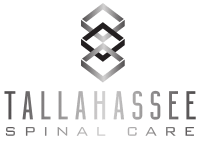A herniated disc is a problem that occurs with the rubbery cushions between the bones that form together to make up your spine. Think of the spinal disc as a jelly donut, which has a soft center encased in a tough exterior. Also referred to as a ruptured disc or slipped disc, a herniated disc happens when the softer jelly is pushed out from a tear in the tough exterior.
A herniated disc can cause weakness or numbness in the leg or arm and can irritate nearby nerves, which can cause tremendous pain. However, some people don’t experience any symptoms when they suffer from a herniated disc and some individuals don’t even require surgery.
Symptoms of a Herniated Disc
Herniated discs tend to occur in the lower back, but they can also occur in the neck as well. To give you a better idea of a herniated disc, we are going to share some of the symptoms. Here are some of them:
Pain in Arm or Leg
If you suffer a herniated disc in your lower back, you will feel a sharp pain in your calf, buttocks, and thigh, and may even include your foot. If the herniated disc is in your neck area, the most intense pain will be felt in the arm and the shoulder.
You may experience a sharp pain in your leg or arm when you sneeze, cough, or move your spine into another position.
Weakness
Muscles that are connected with the nerves affected by the herniated disc will weaken, which may cause you to struggle to hold or lift items and even stumble.
Tingling or numbness
Those that are affected by a herniated disc also experience tingling or numbness in the part of the body that is connected to the affected nerves.
Most people have no idea that they have a herniated disc, and it ends up showing in the spinal images of people that haven’t shown any symptoms.
Causes of a Herniated Disc
It doesn’t take much to suffer from a herniated disc since you can suffer from one by an injury or excessive strain on the body. The disc material starts to naturally degenerate as you age, and the ligaments that hold the disc in place start to weaken. The progression of the degeneration means that even a simple twisting movement or minor strain may rupture a disc.
Some individuals are more vulnerable to disc problems, which is why they tend to suffer several herniated discs in their spine. It has been revealed in numerous studies that some families have a history of suffering from herniated discs, which may affect several members in the family.
We Provide Relief for Chronic Back, Neck & Nerve Pain – Are You a Candidate For Our Cutting Edge Technology?
Want an expert on your health team? Call our office today at (850) 222-1171.
Enter Your Information Below to Get Your Free
Back, Neck & Sciatica Pain Report
That Everyone Is Talking About!

